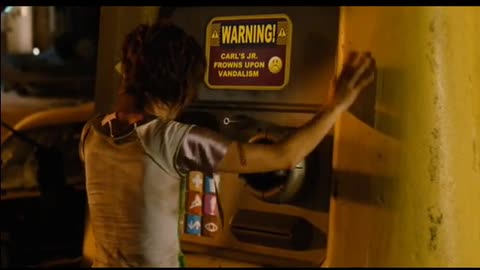Collars white and blue will be impacted by automation in the coming decades, the question being whether enough new jobs will be created to make up for the losses of lawyers and livery drivers.
Two passages follow, one from a Business Insider piece by Kate Taylor on Carl’s Jr. CEO Andy Puzder who boldly stepped into the future (and put his foot in the mouth) in announcing he wants to open an Eatsa-esque automated location, while simultaneously bashing humans laborers, those pests, and their requests for living wages and basic rights. The second excerpt comes from a Financial Times article by Jane Croft about the projected technological transition in the legal profession that will favor some while displacing others.
______________________
From Business Insider:
First and foremost, the technology has to work every time. For the time being, Puzder doesn’t think that it’s likely that any machine could take over the more nuanced kitchen work of Carl’s Jr. and Hardee’s.
But for more rote tasks like grilling a burger or taking an order, technology may be even more precise than human employees.
“They’re always polite, they always upsell, they never take a vacation, they never show up late, there’s never a slip-and-fall, or an age, sex, or race discrimination case,” says Puzder of swapping employees for machines.
…
Puzder says that a restaurant that’s 100% automated would have one big plus for millennials: no social interaction.
“Millennials like not seeing people,” he says. “I’ve been inside restaurants where we’ve installed ordering kiosks … and I’ve actually seen young people waiting in line to use the kiosk where there’s a person standing behind the counter, waiting on nobody.”•
______________________
From Financial Times:
Around 114,000 jobs in the legal sector are likely to become automated in the next 20 years as technology transforms the profession, a new study has found.
Automation, changes in the demands from clients and the rise of millennials in the workplace will alter the types of skills sought after by law firms, according to the new study by Deloitte which predicts a tipping point for law firms by 2020.
Technology has already contributed to a reduction of around 31,000 jobs in the sector including roles such as legal secretaries, the report said, as it predicted that another 39 per cent of jobs are at “high risk” of being made redundant by machines in the next two decades.
The sector is currently growing; there has been an overall increase of approximately 80,000 jobs — most of which are higher skilled and better paid, such as barristers and solicitors.
The study also predicts a healthier future for highly skilled lawyers. It points to projections by the Warwick Institute for Employment Research which estimates that 25,000 extra workers will be needed in legal activities sector between 2015 and 2020.•
Tags: Andy Puzder, Jane Croft, Kate Taylor

